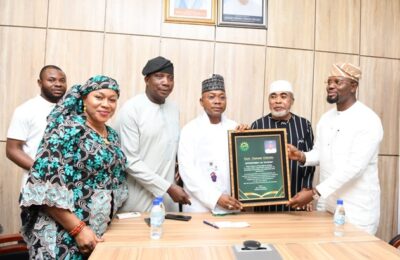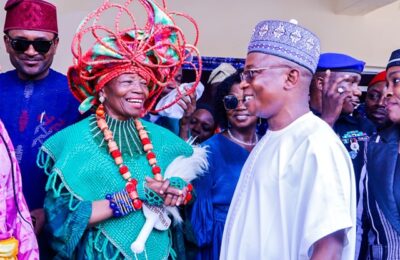In a country long stitched together by a fragile thread of unity, the National Assembly’s move to institutionalize the Sultan of Sokoto as permanent co-chairman of the National Council for Traditional Rulers threatens to unravel the very fabric of Nigeria’s plural identity. The bill, currently before the Senate and championed by Senator Simon Bako Lalong, carries a clause as divisive as it is dangerous—one that seeks to elevate a singular throne above a forest of equally ancient crowns. If Nigeria is a tree with many roots, then to pour all the water into a single branch is to doom the rest to wither.
The Middle Belt Forum, standing as the conscience of its diverse ethnicities and time-tested monarchies, has raised its voice not in defiance but in historical correction. Their rejection of the Sultan’s proposed status is not a rebellion against unity, but a protest against a false hierarchy manufactured under legislative fog. In the eyes of the Middle Belt, this is not merely a bill—it is a political masquerade, dancing on the graves of ancestral legacies and mocking the integrity of a secular republic. To crown injustice with legality is to decorate a lie and expect it to become truth.
Centuries before the Sokoto Caliphate was born from jihadist fires, kingdoms flourished in the Middle Belt with systems of governance, trade, spirituality, and diplomacy far beyond the shadow of the Fulani expansion. The Kwararafa Confederacy, the Igala Kingdom, the Nupe domain, the Tiv homelands—all pulsed with the rhythm of indigenous authority. These were not footnotes to Fulani history; they were parallel civilizations. The Attah of Igala, the Aku Uka of Wukari, the Etsu Nupe, and the Tor Tiv are not remnants of the past but living monuments to an unbroken cultural identity that has resisted religious conquest and political erasure.
To insist, therefore, that the Sultan of Sokoto, whose spiritual domain aligns solely with the Islamic faith, should be permanently enthroned over this council, is to subtly declare some histories superior, some traditions lesser, and some peoples eternally subordinate. It is a maneuver cloaked in parliamentary procedure but driven by an undercurrent of supremacist nostalgia. The ancestors do not sleep when truth is mangled in the corridors of power.
This bill not only threatens historical equilibrium; it stirs the embers of Nigeria’s deepest wounds—religious intolerance, ethnic hegemony, and political marginalization. The Sultan is not just a traditional leader. He is the acknowledged spiritual head of all Muslims in Nigeria. That is a sacred office that should neither be diluted nor imposed over a council that includes Christian kings, traditional spiritualists, and monarchs whose peoples have long upheld the secular ideals upon which Nigeria claims to stand. In a country often bruised by sectarian violence, the elevation of one religious figure into a national secular institution by force of law will only deepen suspicion and fuel resentment.
The symbolism is perilous. In the same country where entire communities in the Middle Belt have been devastated by attacks linked to Fulani herdsmen—whose national patron is the Sultan himself—it becomes both insensitive and inflammatory to bestow upon that same figure a crown of national preeminence. While it may be argued that the Sultan’s connection to the Miyetti Allah Cattle Breeders Association is ceremonial, the association’s notoriety and the trauma it represents cannot be sanitized by semantics. What will it say to the thousands of displaced farmers and grieving families if the same voice that remained muted through their pain is elevated above their kings?
It is no surprise, then, that the Middle Belt Forum has threatened to withdraw its monarchs from any such council if the bill is passed in its current form. This is not secession—it is self-respect. A child whose heritage is constantly trampled must eventually pick up his father’s staff and say, “Enough.”_ The MBF’s stand is a reminder that the Middle Belt is not a wilderness waiting for direction; it is a region of empires, cultures, and spiritual depth. To treat its people as junior partners in a shared national identity is to plant a tree and deny it sunlight.
History cannot be legislated. You may draft a bill to crown a man, but you cannot re-write the memory of a people. The attempt to permanently enthrone the Sultan is not only an affront to the ancient thrones of the Middle Belt but an insult to the very principle of federalism. If Nigeria is a federation, then every component must stand with equal dignity. If she is a republic, then no single culture should sit as first among equals by fiat.
Let it not be said that Nigeria, a nation of over 300 ethnic nationalities, allowed one throne to be gilded while others were garnished in shadow. Let it not be recorded that we exchanged the mistakes of colonial indirect rule for a self-imposed spiritual oligarchy. As Chinua Achebe warned, “There is nothing wrong with the Nigerian character. The Nigerian problem is the unwillingness or inability of its leaders to rise to the responsibility.”
And part of that irresponsibility is the inability to listen to the silent voices of history before they become loud cries of resistance.
The solution is not far-fetched. Rotation, democratic selection among the traditional rulers, or tenure-based leadership are all viable pathways that reflect fairness, inclusion, and the truth of Nigeria’s complex heritage. This is the path of peace and mutual recognition. Anything else is not unity—it is submission. Not tradition—it is imposition. Not Nigeria—it is nostalgia dressed in deception.
As our elders would say, “The river that forgets its source will dry up in the sun.” Nigeria must remember its many rivers—Middle Belt rivers, Southern rivers, Kanuri rivers, Igbo rivers—and allow each to flow with dignity. The attempt to raise one throne above others will not bring harmony, but disharmony disguised as consensus.
If this bill passes with its contentious clause intact, it will not only fail the Middle Belt—it will betray the nation. The damage will not be immediate, but it will be enduring. And history, patient and unforgiving, will remember who stood and who knelt.
– Inah Boniface Ocholi writes from Ayah – Igalamela/Odolu LGA, Kogi state.
08152094428 (SMS Only)




